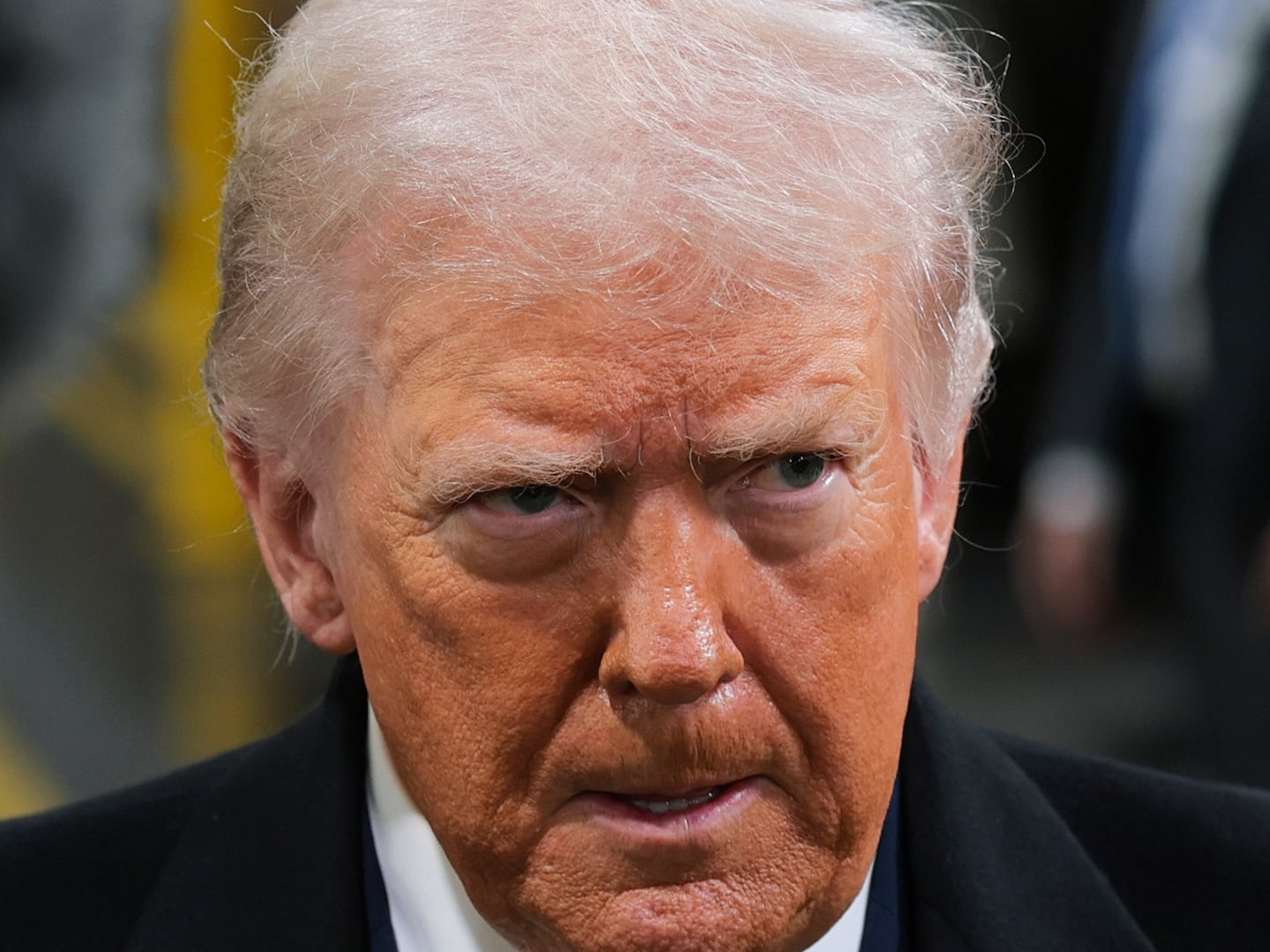On Aug. 27, President Obama met in the White House Situation Room with the high-level panel he’d picked to identify ways to reform the government’s domestic spying policies. All summer, his administration had been engulfed in controversy over revelations by Edward J. Snowden of the National Security Agency’s surveillance practices. Now Obama was trying to regain his footing.
Establishing a blue-ribbon commission in the midst of scandal is a time-honored Washington tradition. It’s a way for a president to try to stanch the bleeding or to say, “Hey, at least I’m doing something!” The move is usually met with cynicism. And indeed, Obama’s critics accused him of filling his panel with establishment cronies who were unlikely to rock any boats.
On the surface, there may be have been reason to be suspicious. Obama had worked closely with four of the five members and two had served in his administration. There was Michael Morrell, the former deputy director of the CIA, who has been a near-constant presence at Obama’s national security meetings. Richard Clarke had advised Obama on counterterrorism issues during the 2008 campaign and was close to National Security Adviser Susan Rice. Two other members, Geoffrey Stone and Cass Sunstein, hailed from the University of Chicago Law School where they had known Obama when he taught constitutional law there in the 90s. (Sunstein later served as a senior official in the Office of Management and Budget under Obama.)
Obama, of course, insisted he wanted their independent, unvarnished judgments. He told Chief of Staff Denis McDonough and National Security Adviser Susan Rice that the experts were to have complete access to classified information as well as the opportunity to interview whomever they wanted within the intelligence community, up and down the chain.
When the President's Review Group in Intelligence and Communications Technologies released its report earlier this week, there was little doubt that Obama had gotten what he’d said he wanted.
According to one of the panel’s members, Susan Rice said yesterday that at the outset she had her doubts about how well things would work. "We're taking five guys with big egos and a lot of testosterone and putting them in a room together and not telling them who's in charge,” she is reported to have said. She said she wasn’t sure the experiment would work, but it did.
The panel proposed the most sweeping reforms of the NSA since Congress reined in the agency in the wake of the Vietnam-era abuses three decades ago. Perhaps the most significant recommendation was calling for the end of the government’s bulk phone-data collection program. Other proposed reforms include the requirement that a judge approve National Security Letters, the equivalent of subpoenas in criminal cases that the FBI can now issue unilaterally; the appointment of a “public interest advocate” to argue for privacy and civil liberty interests within the secret federal court that overseas surveillance in national security cases; and a new regime of transparency and accountability throughout the government’s surveillance apparatus.
“The president made it very clear that he wanted an independent, tough-minded review,” said Geoffrey Stone, a member of the panel and a constitutional law expert at the University of Chicago Law School. “He put together a really interesting group with different perspectives, values and backgrounds.”
The proposed reforms still have to be adopted by Obama, but momentum appears to be building toward major change. Just before the review board issued its report, a federal judge issued a stinging rebuke of the metadata program, which he said was likely not constitutional. One member of the review board, who asked not to be identified, told The Daily Beast he expected Obama to embrace most of their recommendations. “We think that 75 percent of the recommendations are not controversial within the administration and we’ll be able to get many of the others,” the panelist said.
When the group of experts set out to work on their complicated task, it was not at all clear they would be able to reach a consensus on the most controversial issues. They were an eclectic group of spooks, academics, privacy mavens and security experts.
At the start of their deliberations they agreed that when three out of five members agreed on a recommendation, they would write “we” in the report. When there were dissenting opinions, the plan was to note them in the footnotes. But it never came to that because they were able to reach consensus on every recommendation. “Amazingly, we did find common ground on all 46 of the recommendations,” says Stone.
The men forged a close bond through the intensity of their work, grinding through incredibly difficult legal, technological, and security questions under immense time constraints. They met in Washington one, two or three days a week, most of them having to travel from of town. Stone traveled from Chicago, while Sunstein came from Boston or New York (he is married to U.N. Ambassador Samantha Power), and Peter Swire, a privacy specialist, flew in from Atlanta. At home, they had to work out of a secure government facility, known as a SCIF, because they needed to review highly classified documents. (Stone, for example, worked out of the FBI’s Chicago field office.) They also took a field trip to NSA headquarters in Fort Meade, Maryland to see the super-secret spy agency’s operations first hand.
The issue that many expected would be the hardest to agree on--the phone metadata program--did not divide the panel at all. Defenders of the program, including the NSA’s leadership, had vehemently argued that the ability to run leads against the vast database of phone data had foiled plots and saved lives. Key to the program, they contended, was the ability to move with agility and speed by maintaining the vast storehouse of numbers within the NSA and not having to seek judicial approval each time they queried the database.
But as the review board members studied the evidence, they began to seriously question that basic premise that was being relied on to justify the invasive program. For one thing, the NSA couldn’t provide a single compelling example in which the supposed advantages of maintaining the database within the government or bypassing judges for individual queries prevented an act of terrorism. That led the panel to believe that the metadata could be stored by the phone companies or a private consortium and judges could sign off on each query of the database. In the case of a clear emergency, the government could still bypass a judge and then seek after-the-fact approval. “Believe it or not, that one wasn’t so hard,” says Stone. “We just talked through why there should be a judicial determination.” Moreover, Stone says, when they looked at the relevant statute--section 215 of the Patriot Act--they saw that it was never meant to authorize these kinds of searches without judicial approval.
Although the NSA has stoutly defended the metadata program in public, some of the review board members believe the agency many not put up a fight to keep it. In fact, two member of the board said that NSA Director Keith Alexander told them it would be something of a relief to give it up, with all of its burdensome requirements not to mention the lousy PR. “Alexander told us he’d be happy to give it up,” one of the board members told The Daily Beast.
And if the recommendation is adopted by Obama, the responsibilities of the program would likely move from the NSA to the FBI, which would then have to query to database directly. One panel source said that the FBI is already asking for a dedicated fiber-optic link that they could use to suck the data directly out of the carriers’ databases.
Still, it is likely that the NSA will push back against some, if not all of the panel’s suggestions. But the pragmatic response from the intelligence community, Stone says, would be to embrace their recommendations. “My own personal view is that they should welcome the recommendations because they in fact leave them with the authority for the things they feel they need to do,” says Stone. Moreover, he says, the changes will restore trust in the NSA that has eroded since the Snowden disclosures began to leak out last summer. “I would say to them, ‘Guys, it is in your self interest here to know that it is good to have these reviews, so don’t get your back up.’”
Stone says that lost in all of the controversy, and perhaps shrouded by the panel’s call for far-reaching reform, is how careful the NSA actually is about trying to protect the privacy of Americans. “I think the intelligence community has gotten a bad rap,” he says. “I came away extraordinarily impressed by the seriousness with which officials take their responsibility to act within the confines of the law.” Adds Stone: “The notion that they are some kind of rogue, lawless agency is just wrong. They were just using the authorities that were given to them.”
No one knows for sure how many of the recommendations Obama will adopt. He has already rejected at least one calling for separate leaders for the NSA and the United States Cyber Command. He plans to study the report while on vacation during the Christmas holiday and is expected to make his views known shortly after he returns to Washington.
But when Obama met with the panel on Wednesday morning, he gave every indication that he was pleased with their work. Without referring to notes he spoke in granular detail about many of the recommendations, according to one member of the review board. Then he thanked them for their hard work–“especially given how much we paid you.” None of the board members accepted payment for their service.





